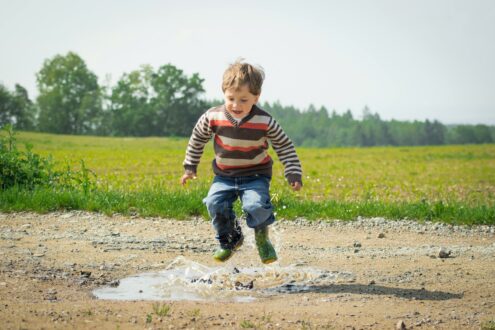We all know that parenting is quite the adventure, with loads of fun moments and other not so fun moments. Every day you’re faced with decisions that might shape the person your little one becomes. It’s a big responsibility! And while it’s tempting to jam-pack their schedule with every educational activity under the sun, what they really need is a little bit of everything in the right amount at the right time. Let’s take a look at how you can mix it up. Balancing their activities can actually help them not just grow, but truly thrive in their own unique way.

Photo by Karolina Kaboompics
Understanding Individuality In Child Development
If you don’t know it yet, then this is perhaps the biggest thing to know about children. No two kids are the same. Some might never stop talking from the get-go, while others might be the silent thinkers or the ones who can’t sit still. It’s all about looking out for what makes your child tick. By taking the time to understand their individuality in the early years, you can catch on to what activities make their eyes light up. Once you know what they lean towards naturally, you can better support their journey. It’s more about nurturing their natural path, not pushing them down a one-way street! Each child’s individual journey is a beautiful, organic process that unfolds in its own time and way.
The Spectrum Of Developmental Activities
So, what does a well-rounded schedule look like for a child? Think of a balanced mix of brain-boosting and enjoyable activities that cater to every aspect of their development:
Cognitive Development: You need to find ways to get those little neurons firing! Sure, school does a lot of the heavy lifting, but home is where the heart is! Puzzles, stories that twist and turn, and even a strategic game of chess can teach them the skill of thinking ahead.
Physical Development: All of their energy needs to go somewhere! Whether it’s football, swimming, or a silly game in the garden, moving and shaking are fantastic for their bodies and minds.
Emotional Development: It’s time to get a grip on big feelings. Talking about emotions, practising mindfulness, and stories that explore feelings are perfect for growing their emotional toolkit.
Social Development: Friends are such an important part of growing up. Playdates, sports, and family game nights teach lessons about sharing, caring, and fair play that they wouldn’t learn anywhere else.
Creative Development: Creative activities are your child’s first taste of expressing their unique self to the world. Drawing, writing, imaginative play, you name it! Through these diverse experiences, children gain the confidence to explore and the resilience to recover from setbacks.
Balancing Structure And Free Play
Structured activities have their place, but let’s not forget the importance and magic of free play. It’s when they’re left to their own devices (not the electronic kind) that kids really start to use their imagination. Mix scheduled activities with loads of free playtime. This way, they can start to look into their own creative mind, explore, and even learn to handle boredom, which, believe it or not, is a good skill to have! Unstructured time is not wasted time; in fact, it allows for growth in ways that structured activities just can’t beat.
Tips For Creating A Balanced Developmental Schedule
Observe And Adapt: Keep an eye on them. If your child seems overwhelmed or uninterested, it’s okay to change things up. The best plan evolves with your child’s needs.
Involve Your Child In Planning: What better way to empower your kids than by letting them help plan their week? It’s an important skill for them to learn. And they might just surprise you with what they come up with!
Mix And Match: A little bit of this, a little bit of that—try to keep it exciting! Maybe a morning of building lego towers, followed by an afternoon of messy play or crafting.
Emphasise Quality Over Quantity: Better to have the best time doing one thing they love each day than to rush through a bunch of random activities that just exhausts everyone.
Conclusion
Remember, the goal isn’t to create a superkid. It’s about nurturing a happy, healthy child who feels supported in wandering around their world. Keeping a balanced approach to their activities is key—not just filling their time, but enriching their whole self. By staying tuned to their needs and adding in a variety of developmental activities, you’re setting them up for a well-rounded, joyful journey of growth. In this shared journey, every day is an opportunity to inspire and be inspired by the incredible potential of our children.







Leave a Reply